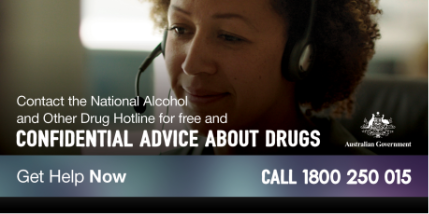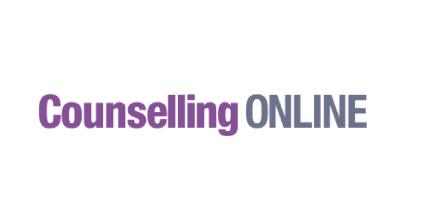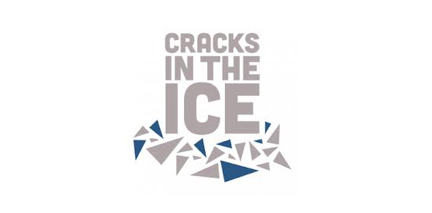Concerned about your own or
someone else’s drug use?

The National Alcohol and Other Drug Hotline
For free and confidential advice about alcohol and other drugs, call the National Alcohol and Other Drug hotline: 1800 250 015. It will automatically direct you to the Alcohol and Drug Information Service in your state or territory. Click here for more information



